Chesterton, Shaw, and the Effect of Laughter on Insult
by Marc Barnes
Filed under Anthropology
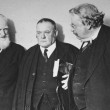
The Internet hath done wondrous deeds, but raising the intellectual bar cannot counted among them. This became clear when I realized the question man alone has the dignity to ask—Am I a creature or an accident?—is being answered by taking screenshots of our oppositions’ Facebook statuses, rebutting them in Impact font, and posting them in a forum appropriated for the caress of our preconceived notions and the heavy petting of our unexamined faith. In this climate of awful,... Read More
Seven Proofs for the Natural Immortality of the Human Soul
by Tim Staples
Filed under Anthropology

The late Dr. Antony Flew—perhaps the greatest atheist thinker of the last hundred years—came to faith in God largely through his studies in philosophy and, most especially, science, as he recounted in his book written with Roy Abraham Varghese, There is a God: How the World's Most Notorious Atheist Changed His Mind. It was in 2004 that Dr. Flew rocked the world with his confession that he had come to believe in God. He made clear that he accepted deism, and not the God... Read More
What Makes a Person Special?
by Jennifer Fulwiler
Filed under Anthropology

A while back my kids were watching the Nick Jr. cartoon Ni Hao, Kai-Lan, and I happened to see something that has troubled me ever since. Kai-Lan is a little girl with a friend named Rintoo, and in this particular episode Rintoo isn’t feeling special. Kai-Lan and her other friends seem to have an instinctive feeling that Rintoo must be special somehow, and spend most of the episode trying to figure out why that is. After some searching, they finally figure it out. At the climax of... Read More
Why Aren’t You Naked?
by Marc Barnes
Filed under Anthropology

I’m curious as to why man is in the habit of wearing clothes, when no other animal has been spotted with even the smallest, most insignificant of socks. We could say it’s the fault of the cold, but humans wear clothes at the Equator. We could take a Darwinian tactic and argue that clothes are hygienic—and thus the people who wore clothes outlived and out-reproduced those who ran young, wild and free—but this assumes too much. A soiled rag around the crotch seems far less healthy... Read More
Woody Allen the Moralist
by Bishop Robert Barron
Filed under Anthropology

Who would have thought that Woody Allen, who twenty years ago was separating from his longtime girlfriend to notoriously marry her adopted daughter, would emerge as a defender of what can only be called traditional morality? And yet, I find that conclusion unavoidable after viewing the writer-director’s recent offering, “To Rome With Love.” This film is the latest in a series of Woody Allen movies—“Match Point,” "Vicky Christina Barcelona,” “Midnight in Paris”—celebrating... Read More
Is Reality Just What We Think It Is?
by Dr. Benjamin Wiker
Filed under Anthropology
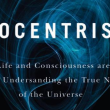
The human mind, by its nature, strives to know everything. But just because we have the desire to know everything, our reach often exceeds a sure grasp of reality, and we fall into fantasy. So it is with Robert Lanza's Biocentrism: How Life and Consciousness are the Keys to Understanding the True Nature of the Universe which offers a new and elaborate form of solipsism. The universe and everything in it, Lanza asserts confidently, exists because we perceive it. In his words, "the observer... Read More
Free-Thinking: Doctrine or Illusion?
by Dr. Stacy Trasancos
Filed under Anthropology
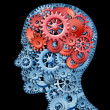
Recently there was an excellent question in the Strange Notions comment boxes from Rob Tish. He wanted to know what the Bible means when it says God created man in His own image: "If God is so fundamentally and essentially different from us, then in what sense are we made in His image?" In a word: We are free-thinkers. Since invoking that word requires some explanation, the response is three-fold. First is the answer to Rob's question, with explanation and reference to the Catechism of... Read More
Catholicism and Free Thought
by Fr. Dwight Longenecker
Filed under Anthropology, Religion, Uncategorized

Many people believe that Catholicism, because it is a dogmatic religion, stifles free thought and free speech. “How nice for you,” some will say to a Catholic convert, “Now that you’re a Catholic, you won’t have to think anymore.” Or, “It must be nice to be a Catholic and have such ‘certainty.’” This is said with a snuffling, cynical laugh because by ‘certainty’ they often mean that one has become a mindless robot—a Kool Aid drinking cult member following... Read More
The Case for Life After Death
by Dr. Peter Kreeft
Filed under Anthropology
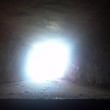
Can you prove life after death? Whenever we argue about whether a thing can be proved, we should distinguish five different questions about that thing: Does it really exist or not? "To be or not to be, that is the question." If it does exist, do we know that it exists? A thing can obviously exist without our knowing it. If we know that it exists, can we be certain of this knowledge? Our knowledge might be true but uncertain; it might be "right opinion." If it is certain, is there... Read More
Know Thyself: The Insolvable Puzzle
by Dr. Peter Kreeft
Filed under Anthropology
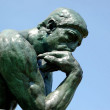
Though agape [i.e. selfless love] comes from God, it resides in our free will as human beings. Its home is not the body or the feelings, or even the intellect, but the will. True, the intellect has to work with it. But it is not the intellect that loves, any more than it is the light in the operating room that performs the surgery.Agape may be aided by seeing, accompanied by feeling, and accomplished by doing, but it is essentially an act of choosing, an act of free will. If God exists,... Read More






